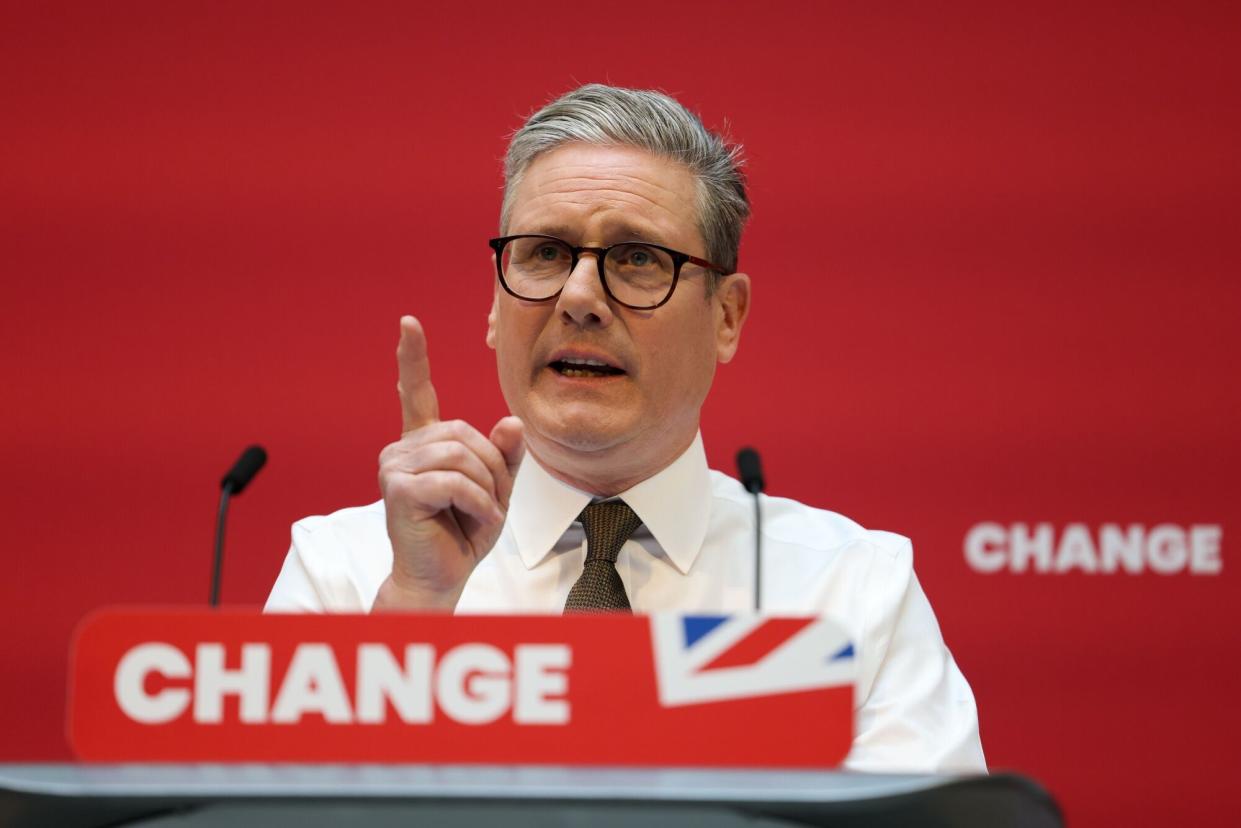Starmer Says UK Won’t Rejoin EU Trade Bloc in His Lifetime

(Bloomberg) -- Labour leader Keir Starmer said he doesn’t expect the UK to rejoin the European Union’s single market or customs union in his lifetime as he sought to avoid reopening the Brexit debate on the eve of a general election his party is expected to win.
Most Read from Bloomberg
Biden Struggles to Contain Mounting Pressure to Drop Out of Race
Kamala Harris Is Having a Surprise Resurgence as Biden’s Campaign Unravels
China Can End Russia’s War in Ukraine With One Phone Call, Finland Says
“No, I don’t think that is going to happen,” Starmer, 61, told reporters on a campaign visit to South Wales on Wednesday, when asked if he sees any circumstances where the UK re-enters the EU trading blocs over the span of his life.
The comments are symptomatic of a silence on Brexit throughout the campaign. Labour fears alienating Brexit-supporting voters who turned their backs on the party at the 2019 election. Starmer was in the Remain camp in the 2016 referendum, and Conservative Business Secretary Kemi Badenoch has accused Labour of wanting to unravel the decision to leave the EU if it wins power.
Starmer has limited his ambitions to easing post-Brexit trade friction, boosting cooperation and making it easier for Britons to work in the EU.
“I’ve been really clear about not rejoining the EU, the single market or the customs union or return to freedom of movement,” Starmer said.
It nonetheless marks the first time Starmer has explicitly ruled out going back into the EU’s trade regimes beyond the new five-year parliamentary term. That’s despite Labour strategists privately conceding to Bloomberg that doing so would be the most impactful way to boost the economy, a view shared by many economists and investors.
Starmer’s Brexit Silence Risks Backfiring If He Gains Power
Polls show Labour is on track to win the election with a large majority, ending 14 years of Conservative of rule. Starmer will quickly inherit a series of looming crises that Rishi Sunak’s Tory administration has failed to tackle.
One of those issues is the prison network, which is almost at full capacity. Conservative spending totals beyond the current fiscal year imply substantial real-terms cuts to unprotected public services including prisons and courts, which were hit hardest during the austerity years following the 2008 financial crisis.
While Labour has vowed to expand prisons to accommodate 20,000 more inmates by easing planning rules, and boost efforts to link offenders to training and jobs to drive down re-offending, Starmer said a Labour government won’t be able to “build a prison in 24 hours after the election result is called.”
“We’re going to have to get on with the hard yards of sorting this mess out, but it is one massive mess,” he said. Though he said he “instinctively” wouldn’t want to release high-risk prisoners from prisons early to ease capacity, like those at risk to children, he didn’t guarantee a Labour government wouldn’t do that.
“I’m not going to get ahead of myself and say what steps we might have to take,” he said.
Most Read from Bloomberg Businessweek
Dragons and Sex Are Now a $610 Million Business Sweeping Publishing
The Fried Chicken Sandwich Wars Are More Cutthroat Than Ever Before
For Tesla, a Smaller Drop in Sales Is Something to Celebrate
©2024 Bloomberg L.P.



